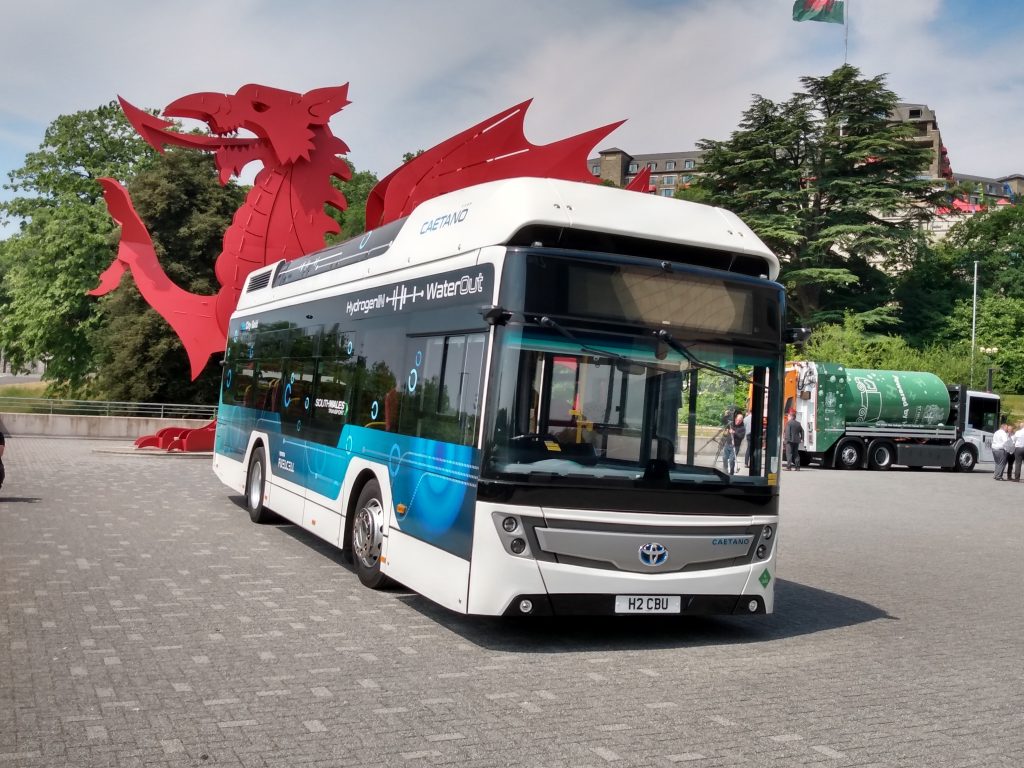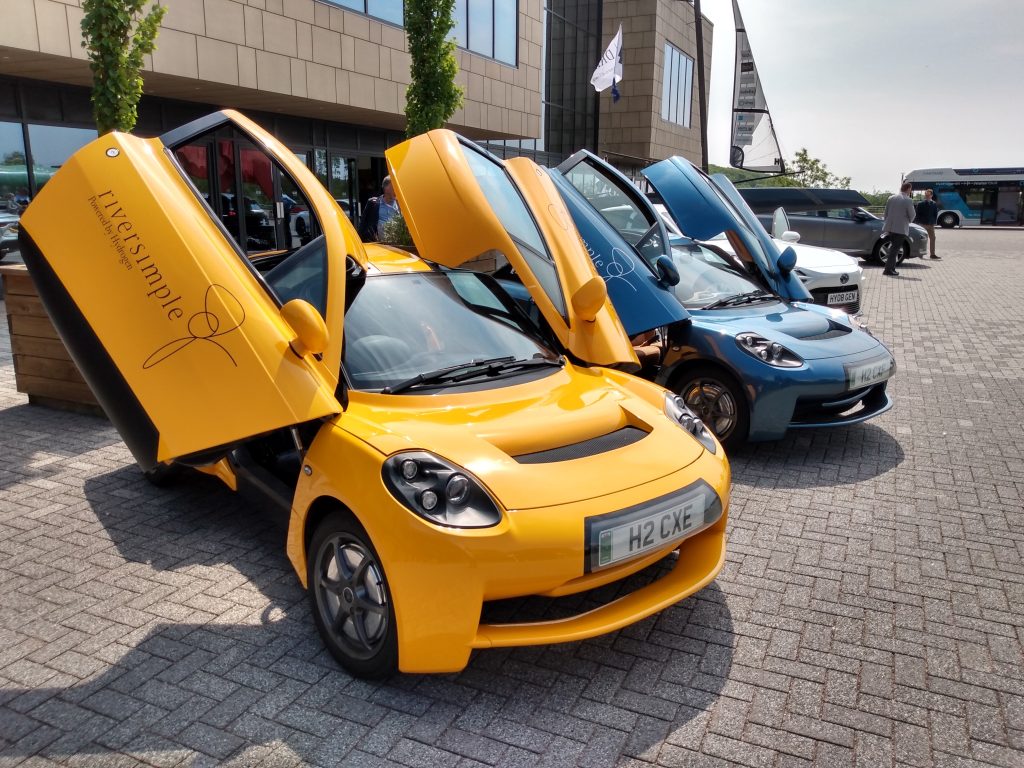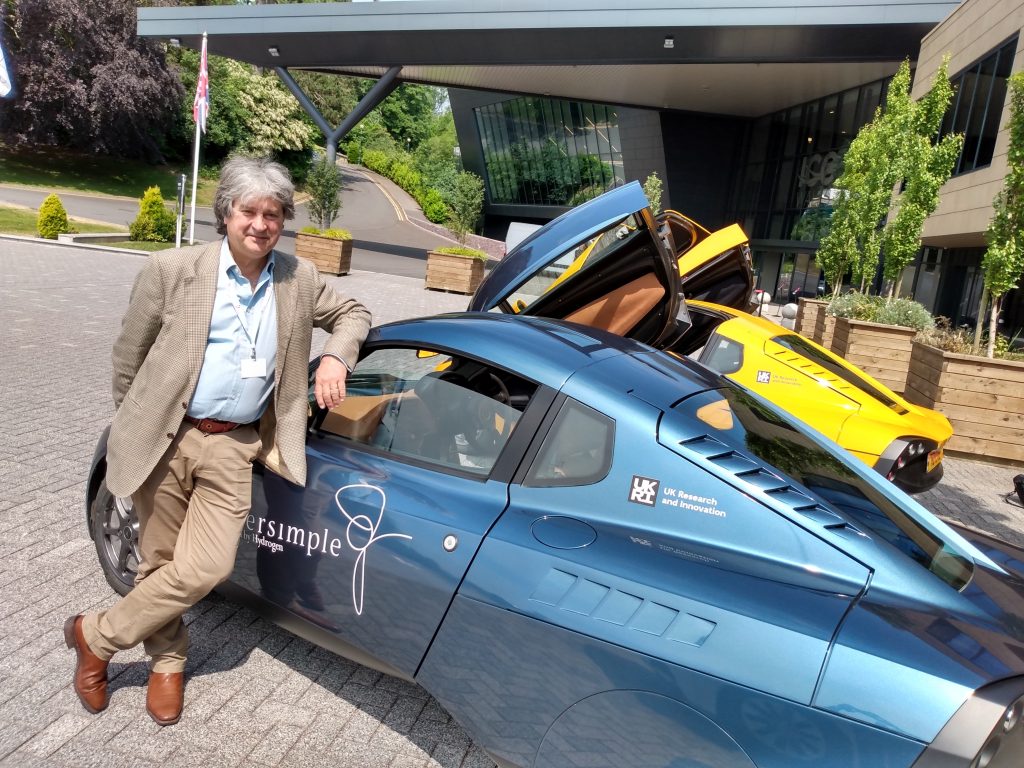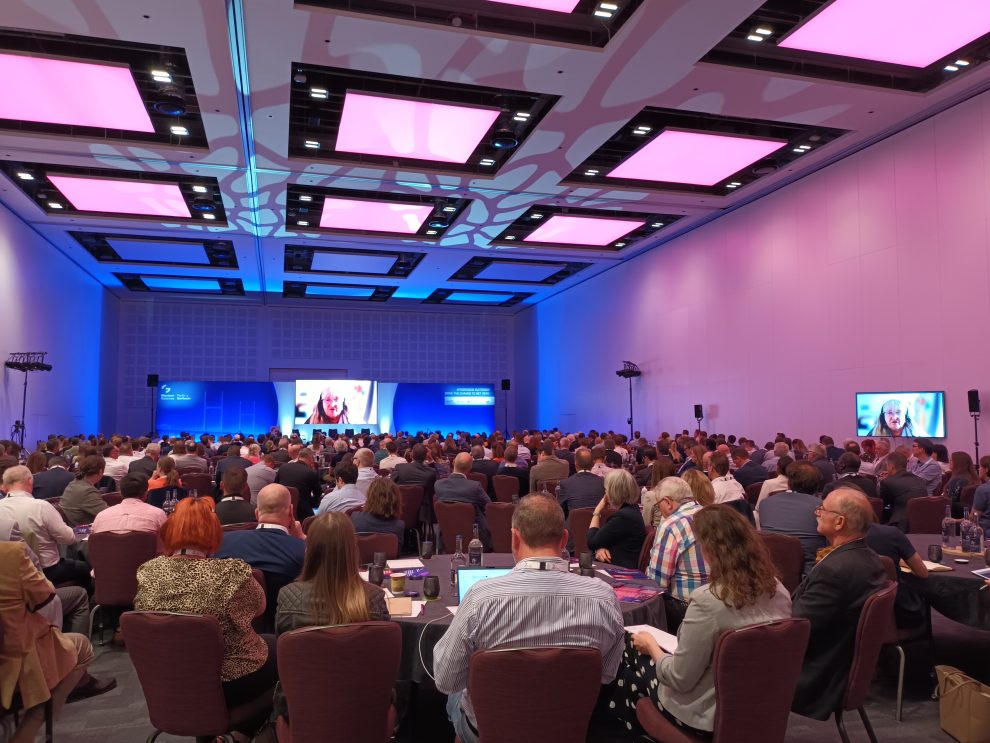“WE HAVE to overcome fear and some powerful people in the electric vehicle market and demonstrate to them we are not the threat they think we are.”
That was the message to delegates at a conference in Newport aimed at boosting the potential of hydrogen as an energy source that can power heavy industry as well as cars and buses – and even keep planes flying.
The ambition is that south Wales and the west of England can become a leading centre for the alternative energy source which can be generated from excess heat from existing industries, including nuclear power, and renewable sources such as windfarms – whether they are on the hilly terrain of the Gwent valleys or off-shore – or even by harnessing the tidal power of the Severn estuary.
New clean power is severely needed if the UK is to meet the UK Government’s Net Zero target, a commitment to have reduced greenhouse gas emissions by 100 per cent from 1990 levels by 2050 – and to avoid climate disaster.
That’s why more the 600 business people, academics, politicians and officials met at the ICC conference centre where Paul Moorby, who heads up a drive on hydrogen production, delivered his message on the potential conflict with electric cars.
The businessman leads on hydrogen for the Western Gateway Partnership – a group that brings together councils from Swansea to Swindon with business leaders and universities, an area, delegates learned, with a population of 4.4 million people. The partnership’s current chair is businesswoman Katherine Bennett, while Newport council leader Jane Mudd serves as deputy.
If the idea of a day-long conference, with panel discussions and “breakout sessions”, which started strictly on time, meaning some in attendance were denied a cup of tea or coffee before having to sit through a video link address by Welsh climate change minister Julie James, sounds as if it would simply generate hot air – there were real life examples of the technology in action.
Outside the centre the UK’s first-ever bin lorry hydrogen fuel cells – a way of capturing, storing and releasing hydrogen – was available for inspection. It had been transported from St Helens, on Merseyside, by lowloader. But that was because it couldn’t be refueled in Newport and its operator stressed it is a “front line vehicle” regularly in use collecting rubbish.

Wales does however have its own hydrogen-powered vehicles, and a bus that has been trialed in Swansea – and more impressively on the hilly terrain above the city up to Pontardawe and across to Neath – was also parked outside.
It had made the journey along the M4 under its own steam, with the hydrogen produced from green, renewable energy sourced in the Swansea area.
Perhaps more eye-catching however were the sports-style cars produced by Riversimple. The mid Wales-based firm road tested its first prototype in 2016 and says it could be mass-producing cars that only emit water, but are still capable of going from nought to 60 miles per hour in 9.7 seconds, by the end of 2026.

It will restart its “beta testing” – a term for when real users try out new products – with paying customers in Abergavenny within the next three weeks. It has previously run trials with support from Monmouthshire County Council, and has invested in a hydrogen refueling station in the town’s bus station.
Company founder, Oxford-educated engineer, Hugo Spowers said customers pay £295 a month, and 18 pence a mile plus VAT, to drive one of the three cars it will be testing with the firm keen to know what real drivers really think of them.

“It’s not testing the technology, we can do that, but the service. Essentially we are a service company, we’re never going to sell the cars, we want to provide value for money for what we offer and know that people like it and we want to learn from them what they like about the service. You can’t do that without people parting with their own money and that will solve the real world problems.”
While much of the talk inside the centre was on legislation, removing regulatory barriers or government and private investment for new hydrogen infrastructure, Mr Spowers, whose firm has a partnership with supply and refueling firm Element 2, said expanding a network of fueling stations doesn’t require subsidy from central government. That, Mr Spowers said, is an advantage over electric cars as the increase in battery supply needs support from government.
“What we need is demand,” said Mr Spowers of the potential for more hydro fuelling stations, which he said could be supported by vehicles such as buses, bin lorries and what he says are the three million cars in the UK that operate on a 25 mile radius.
While the Llandrindod Wells-based firm aims to go into production, on an as yet unidentified site in mid Wales, its boss said he “can’t speak too highly” about the support it has been offered from Monmouthshire council as it has road tested its cars.
To make the cars a common site on our roads however Mr Spowers said investment in production is needed: “We need the finance package. For us the challenge is not technology, it’s not the market, it’s not information it is simply the risk capital, we’ve dealt with all the other risks.”

Hydrogen’s potential isn’t limited to transport and much of the plans in south Wales are centred on decarbonising heavy industry. It was claimed hydrogen infrastructure could create up to 40,000 new jobs, directly and indirectly, in the south Wales and west area and safeguard a further 60,000 existing jobs such as those in the steel industry.
Plans are in place in Swansea and Pembrokeshire for hydrogen generation and storage.
Former UK government minister, Bristol Kingswood MP Chris Skidmore, who chaired the government’s Net Zero review, said hydrogen is important for replacing fossil fuels but also as an energy source that can be exported if the right storage and transportation infrastructure is in place.
“The government has committed £240 million to hydrogen models but that isn’t enough,” said the MP who, speaking to the Local Democracy Reporting Service, added his review had called for a 10-year strategy.
“Germany is putting in more than €10 billion over 10 years and that is what we should be matching,” he added, though the MP said the UK Government is providing £20 billion, over 20 years, into carbon capture technology which can be linked to hydrogen production.
According to Mr Skidmore, the UK Government is committed to hydrogen providing 10 gigawatts of the UK’s electricity supply by 2030. That may mean little to most of us when we flick the switch on the kettle but it’s clearer to understand why there is such interest in the conference when asked what that figure mean in simple terms.
“That would be equivalent to three nuclear power stations worth,” said Mr Skidmore.



















